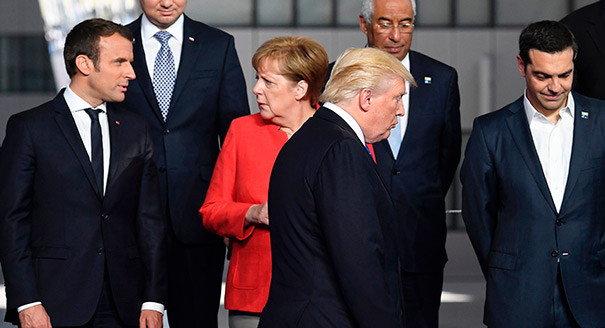Source: German Marshall Fund
Almost eighteen months into the Trump administration, much of the traditional partnership between the United States and Europe is under severe, and in many ways unprecedented, stress. Up to this point, the relationship has been dominated by the myriad of issues on which Washington and European capitals diverge — whether the Paris agreement, the recognition of Jerusalem as the capital of Israel, withdrawal from the JCPOA with Iran, or more recently steel and aluminum tariffs. The Trump administration certainly bears primary responsibility for what is perceived in Europe as a rudderless if not even hostile alliance policy. Yet, despite these differences, the United States and Europe are the most natural partners to confront the 21st century challenges facing liberal democracies. The threats from challengers such as China and Russia will only grow more unmanageable if transatlantic partners retreat into their corners. A way forward on areas of agreement, and areas where mutually beneficial bargains can be carved out, must be found despite the turmoil.
Managing ongoing cooperation and avoiding a split over the inevitable disagreements will be a key challenge for policymakers on both sides of the Atlantic over the coming months and years. Yet, there is a need to go beyond just managing ongoing cooperative efforts to also reinvent the transatlantic agenda — it is time for Washington and European capitals to develop a positive agenda that gives new meaning to the transatlantic alliance. This should include stepping up the U.S. engagement within Europe itself, strengthening the U.S. presence and engagement on Europe’s periphery, and capitalizing on opportunities to work with Europe on addressing shared global challenges. In particular, the Trump administration should focus on four key objectives in the coming three years — cooperation on addressing the rise of China, supporting new EU defense initiatives as part of transatlantic burden-sharing, completing the European project, and ensuring strong U.K.–EU ties post-Brexit. Ultimately, U.S. and European policymakers still share some common ground where practical cooperation can be advanced.
This paper was originally published by German Marshall Fund.
